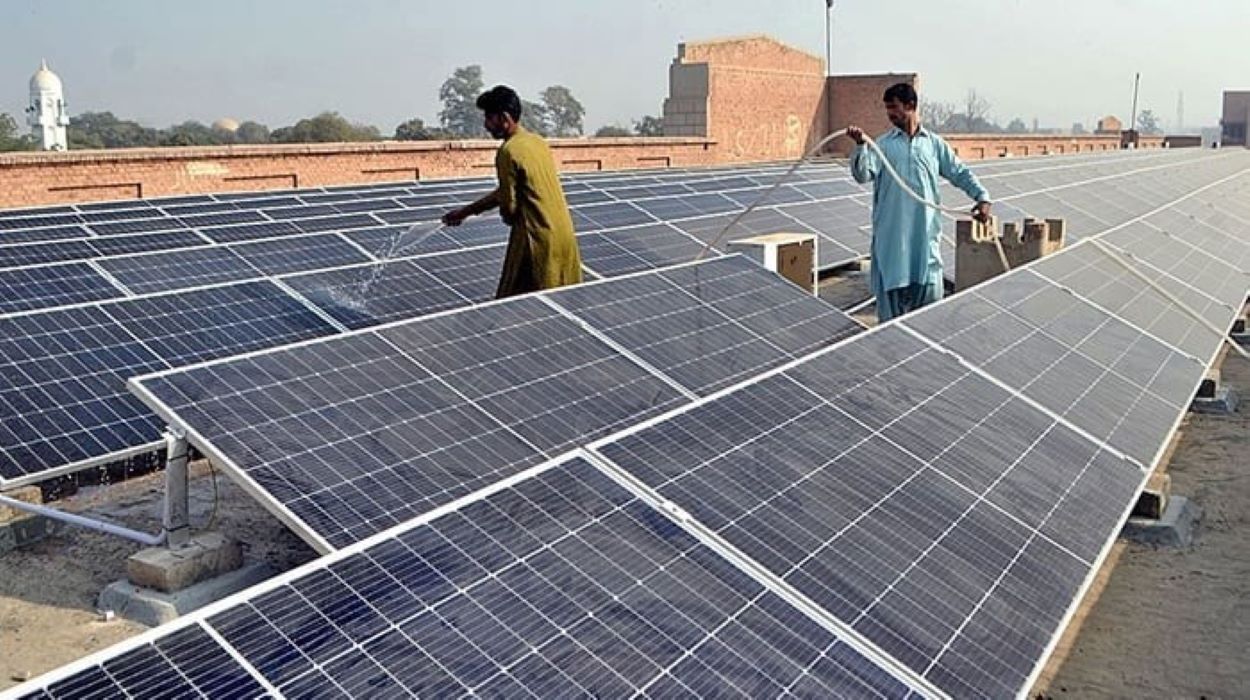On Tuesday, Power Division officials informed the visiting International Monetary Fund (IMF) mission about changes in the solar power policy. They highlighted that power consumers pay Rs800 billion annually through taxation on electricity bills, causing a Rs8 per unit hike. If this taxation is removed, tariffs would decrease by Rs8 per unit. Additionally, consumers also pay electricity duty, PTV fees, and surcharges.
While removing taxes from electricity bills isn’t feasible, reducing them by Rs100-200 billion per year could lower bills by Rs1-2 per unit. Authorities should broaden the tax base, targeting retailers, real estate, and agriculture sectors. The 17% General Sales Tax (GST), which contributes to Rs 600 billion in revenue, cannot be eliminated. However, other taxes amounting to Rs100-200 billion can be removed.
The Power Division’s top management has informed Prime Minister Shehbaz Sharif about the impact of heavy taxation on electric power consumers and its effect on tariffs. They emphasized the need to make electricity sustainable, reliable, and affordable.
Power consumers currently pay various taxes and fees: Electricity Duty (1.0% to 1.5% of Variable Charges), 17% GST, a PTV license fee (Rs35 for domestic, Rs60 for commercial consumers), and a financing cost surcharge of Rs0.43 per kWh. Industrial and commercial consumers not on the active taxpayer list face an extra 5% to 17% tax, while those without a Sales Tax Return Number (STRN) pay an additional 3%. Commercial consumers are charged 5% Sales Tax on bills up to 20,000 and 7.5% on higher amounts. Income Tax rates vary based on the tariff and bill amount.
Authorities are restructuring to improve efficiencies and reduce tariffs. They plan to convert imported coal power plants to local Thar coal.
The IMF was informed that 1938 MW of electricity had been added through rooftop solar systems under net metering, causing a revenue loss of Rs100 billion and a tariff hike of Rs1.90 per unit for non-solar users. The government plans to switch to a gross metering system, reducing the tariff to Rs7.5 to 11 per unit, from Rs21. Solar consumers will get electricity from the national grid at Rs60 per unit during peak hours.
Under gross metering, a consumer is compensated at a fixed feed-in tariff for total solar energy generated and exported to the grid, as measured by a unidirectional gross meter. They must pay the retail supply tariff for power consumed from the grid. Total solar generation is measured by a bidirectional meter, while total power import is measured by a unidirectional meter.






